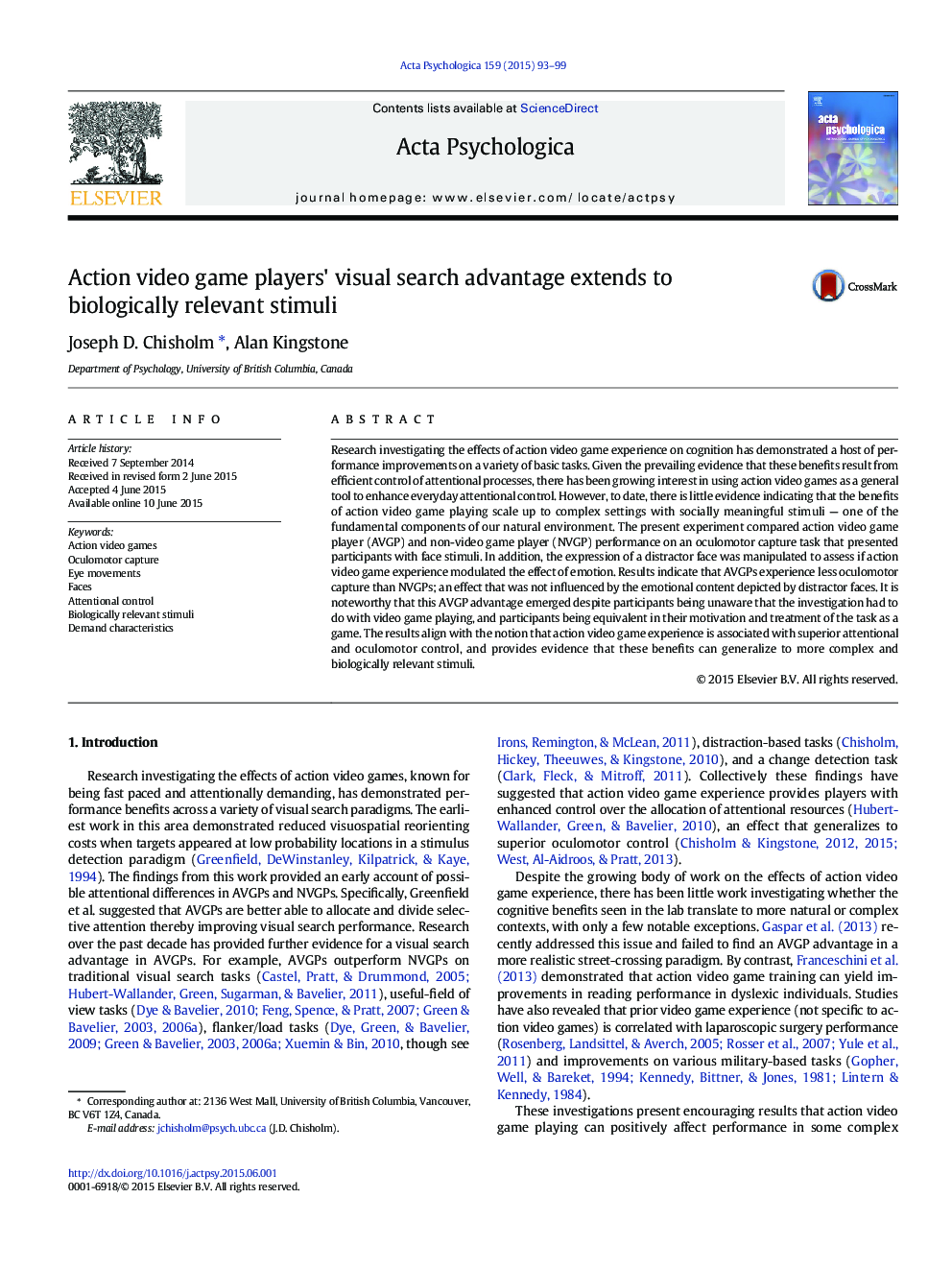| Article ID | Journal | Published Year | Pages | File Type |
|---|---|---|---|---|
| 919719 | Acta Psychologica | 2015 | 7 Pages |
•Action video game players are less susceptible to distraction than non-video game players.•Benefits associated with action video game experience extend to biologically relevant stimuli.•Reported motivation and perception of how game-like the task was did not differ between groups.•Further evidence for improved oculomotor and attentional control in action video game players.
Research investigating the effects of action video game experience on cognition has demonstrated a host of performance improvements on a variety of basic tasks. Given the prevailing evidence that these benefits result from efficient control of attentional processes, there has been growing interest in using action video games as a general tool to enhance everyday attentional control. However, to date, there is little evidence indicating that the benefits of action video game playing scale up to complex settings with socially meaningful stimuli — one of the fundamental components of our natural environment. The present experiment compared action video game player (AVGP) and non-video game player (NVGP) performance on an oculomotor capture task that presented participants with face stimuli. In addition, the expression of a distractor face was manipulated to assess if action video game experience modulated the effect of emotion. Results indicate that AVGPs experience less oculomotor capture than NVGPs; an effect that was not influenced by the emotional content depicted by distractor faces. It is noteworthy that this AVGP advantage emerged despite participants being unaware that the investigation had to do with video game playing, and participants being equivalent in their motivation and treatment of the task as a game. The results align with the notion that action video game experience is associated with superior attentional and oculomotor control, and provides evidence that these benefits can generalize to more complex and biologically relevant stimuli.
